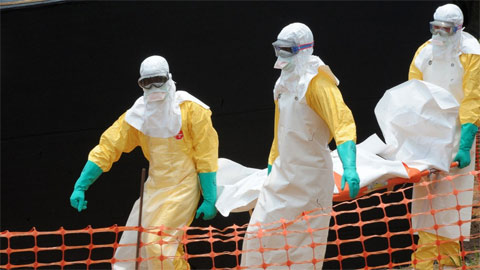
The Red Cross has launched an “emergency response” to the Democratic Republic of Congo’s latest Ebola outbreak. The outbreak was officially confirmed after the death of a 34-year-old pregnant woman on August 20th in Bulape health zone, followed by the deaths of a nurse and a laboratory technician who treated her.
The International Federation of Red Cross and Red Crescent Societies (IFRC), in coordination with the DRC Red Cross, the Ministry of Health, WHO, and key humanitarian partners, is rapidly intensifying Ebola response efforts. According to a report by FundsforNGOs, the government figures report 28 suspected cases, including 16 deaths, representing a fatality rate of 57%, to date. Four of the deceased are healthcare workers, highlighting the risks faced by frontline responders.
OUTBREAK ALERT: Congo Declares New Ebola Outbreak!
This is the 16th Ebola epidemic in the region since 2008.
The outbreak is concentrated in the health zones of Bulape and Mweka, where operational challenges are complicating the response. Road access from Kinshasa takes up to three days, delaying rapid deployment of teams and supplies, while the nearest isolation unit has only 15 beds, far below what is needed. Genetic sequencing has confirmed that this Ebola strain differs from the one identified in Equateur between 2007 and 2009, further complicating containment efforts. –FundsforNGOs
Ebola disease symptoms appear 2 to 21 days after someone is exposed to the virus and can present as either “dry” or “wet”. “Dry” symptoms, like fever and weakness, occur first and can progress to “wet” symptoms, like diarrhea and vomiting.
The Ministry of Health has urged communities to remain vigilant, adhere to preventive measures, and report any suspected cases while the Red Cross volunteers attempt to educate through door-to-door interactions.
According to the Centers for Disease Control and Prevention in the United States, Ebola can cause other health problems can surface after infection, including memory loss, neck swelling, dry mouth, tightness of the chest, hair loss, hearing problems, pain or tingling in the hands and feet, inflammation of the tissues around the heart, inflammation of one or both testicles, changes in menstruation, impotence, decreased or lost interest in sex, difficulty falling or remaining asleep, depression, anxiety, and post-traumatic stress disorder (PTSD).











